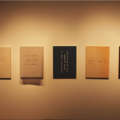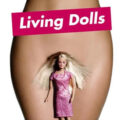Two translated essays by Suzanne Brøgger
Translated by Michael Goldman

Happiness is losing something
Recently a Frenchman complained to me: “Thirty years ago I would have been in the Nazi resistance. Forty years ago I would have been in the Spanish Civil War; fifty years ago I would have been hunting for temples in Indochina; sixty years ago I would have been a Bolshevik in the Russian Revolution; eighty years ago I would have been searching for the source of the Nile; a hundred years ago I would have been in the Commune of Paris. But today? Tell me, where in the world should I go? They say I have a right to be comfortable. But who will give me the right to be uncomfortable?”
I had to admit that discomfort is not a civil right enumerated in the constitution. And it occurs to me that there exists a fundamental human need that the welfare state overlooks: the need to lose something. Real riches are expressed in the possibility of—or the ability to—lose something. To squander. Give up. Risk or jettison.
In the west we suffer, as everyone knows, not from lack but from excess. We have more water than we can drink, more air than we can breathe, more food than we can eat, more words and pictures than we can use. All this excess will lead to our total elimination, if we do not acknowledge the fundamental human need to relinquish and clear away.
My grandmother told me about two Lindy Hoppers who traveled around the world in the forties. The farther they traveled, the more clothes they put in their suitcases. When they made it to Hong Kong, they took some large scissors, and cut off everything that stuck out.
Why does everyone love to see the movie War and Peace? Because you see people drinking vodka by the bucketful, and tossing one glass after the other over their shoulders. Why do the poor look up to rich? Because the rich are more susceptible to loss than anyone, and they have their need to relinquish things satisfied.
Games, parties, love, and war are the best expressions we know for the need to lose, to risk and jettison things. Of course we say we do this in order to get ahead. But we also say it only to the extent that we are plagued by philistine, civilized morality.
It must here be stated that philistine parties and civilized drunkenness do not exist. Excesses like these always include something slipping out and being lost. Something lost, squandered, and disappeared.
The citizen loses nothing; he hoards. He does not reveal himself; he wears a mask. He doesn’t love; he owns. He finds no relief; he holds it in.
Civilized morality, which otherwise tends to hint at “freedom” as the greatest good, ignores exactly that which frees us and makes us unique: the savoring of loss—which people are probably the only creatures on earth that do.
Through centuries the masculine “winner” has been he who sees it as his responsibility—regardless of whether he enjoys it or not—to prevent the woman from “going astray,” that is, to be acquainted with other bodies and souls than his own. And today, as before, a woman has “profited” from her moral and social upbringing when she determines to “hang onto” the man she has “got a hold of.”
But in reality a lot of people could speak to the enjoyment of getting divorced. When a person loses something, they are euphoric—after they’re done crying. “ “I didn’t start learning Hebrew until after I was divorced.” “After becoming a widow, I bought a subscription to the world classics.” And so on. It isn’t until one has lost something that one wakes up.
The people we call “social losers” are often winners with respect to insight. The daily household monotony that springs from civilized ideals, and which bewilder a large part of the citizenry itself, causes many to break out. Many of the people who are creating the Tvind schools, Christiania, and other social experiments, have risen out of the citizenry, because they feel they have everything to lose—and that feels wonderful.

Who needs witches?
While the stereotypical female role has been under fire in recent years, at the same time voices have risen about the necessity of a different female ideal, a search for new role models. I myself have always been impartial to witches. And now I see that I am not alone. Here in Denmark, we have Maren Spliid, a magazine inspired by witch culture. In France, there is a magazine for women: Sorcières, which confirms my old feeling that witches are precisely what we need.
Why witches?
Because they dance. They dance wildly on the meadows in the moonlight. They are wild, like in the way the white man has characterized the earth’s other races; wild, like the label unions give a particular type of striker. Witches fly because they are light. They will not be subdued by any laws, not even gravity.
Why witches?
Because they sing. They shriek and howl and whisper and groan. Otherwise, we have always been told we should be quiet at gatherings. We have been silenced so much we no longer know who we are. Men have spoken to get their way. They have devised hairsplitting arguments and used speech to beat up one another. It would be an insane divergence if women in their “liberation” attempt to adopt this machine gun discourse—or believe they can use it to their purposes. Estrangement of women from their own gender is irreparable if we dream for one moment of speaking the language of men.
Why witches?
Because they are alive. In direct contact with nature and the body, theirs and others’. We live just outside of, in opposition to our own bodies. When our body gives us signals about inappropriate endeavors, through illness, for example, we become afraid and surprised, as if it were something external and foreign. Our bodies don’t belong to us anymore. We have given them over to specialists and science, relinquishing the body’s self-healing power, no longer able to manage its signals ourselves. Witches could heal. And poison. They didn’t have “supernatural” knowledge, but they did know they were part of nature. They knew the uses of plants and preventative substances, they were masters of deliveries and abortions. But their earthly power was too much for the church and science. Therefore, in the fourteenth century, the church declared that any woman who dared to heal without having studied at a unviersity would be burned as a witch.
Why witches?
Because they enjoy life. Women have been convinced that they are chaste and frigid in order to better curb the prevalent male passion for conquest and ownership. In reality the pleasure of the woman is so powerful, limitless, open, and deadly that men have not yet been able to accept it. Out of pure terror they have burned so many women—eight million in two centuries—that one might think they were out to eliminate the female gender from the earth. In “Malleus Maleficarum,” the bible of misogyny, it is written: “All witchcraft stems from passion of the flesh, which in a woman is insatiable.” Men say that witches possessed magic powers, but it was not magic, it was sexual. It did not come from Satan or God, but was the expression of the power of the subconscious, the power of the Body.
One who gives in to unconscious thoughts and outcomes is surely lost. Lost to social reward and acceptance. We are obviously a danger to that society which is built on the silencing and suppression of female power. If we were not so dangerous, it would not have been necessary to hold us captive and to silence us for so many centuries.
More than one hundred of Michael Goldman‘s translations have appeared in more than thirty-five literary journals, including The Massachusetts Review, Rattle, International Poetry Review, and World Literature Today. His ten books in translation from Spuyten Duyvil Press include Farming Dreams (poetry) by Knud Sørensen; The Water Farm trilogy (fiction) by Cecil Bødker; and Something to Live Up To (poetry) by Benny Andersen. His translation of the memoir Dependency by Tove Ditlevsen is forthcoming as a Penguin Modern Classic in 2019. Twenty of his original poems have appeared in various journals. He lives in Florence, Mass.
About Suzanne Brøgger
Author of 25 books, journalist, essayist, novelist, playwright, and poet Suzanne Brøgger (b. 1944) has made a career of challenging western societal norms, especially with respect to gender, love and sex. Her 1973 book, Deliver Us From Love, has been translated into twenty languages. She is a member of the Danish Academy and a recipient of a lifelong grant from the Danish Arts Foundation.





